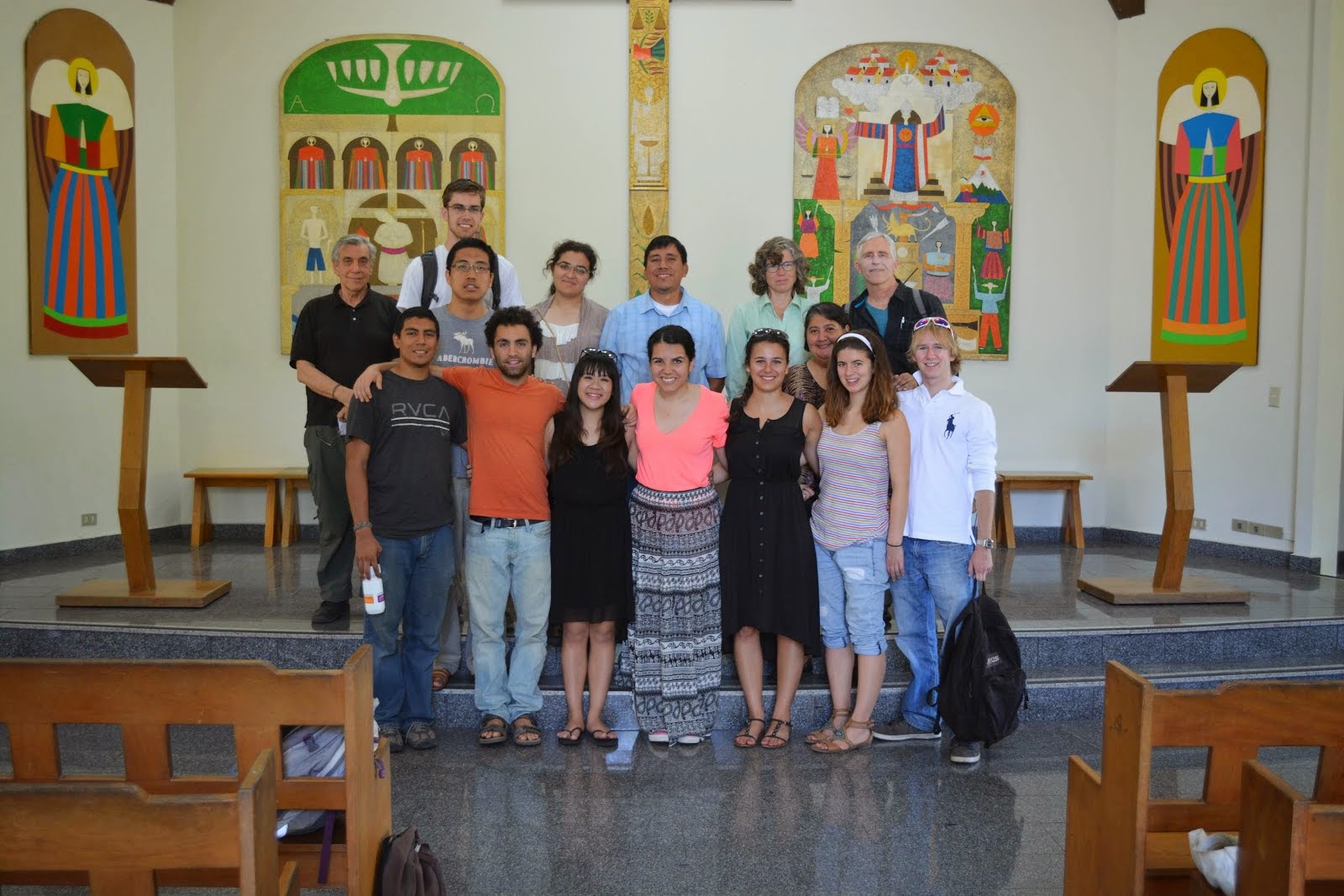Today, Tuesday, in El Salvador I learned a great deal about the thoughts of the people.
I spent the first few days questioning humanity and wondering how the
government could commit atrocious crimes and the people could see their
position as fate. Today
though I decided to personally step back and just listen to the
thoughts that were vocalized by the speakers in order to learn more
before I start making judgments and pondering about which I know nothing
of.
The
first meeting of the day was with Suyapa Perez, a liberation theologian
and professor at the UCA. I began the conversation by presenting one of
my critiques of liberation theology as a question. My question was
along the lines of "why do
liberation theologians use Catholicism to
justify their demands when the same institution has been used to keep
them subdued?" She answered masterfully by alluding to the history of
liberation theology and deducing its purpose. The answer that I took
from her response, which was rather lengthy, was that Salvadorans are
emotionally and spiritually linked to the martyrs of their cause and do
not want to depart the church because it is an integral part of life.
This is something that I never understood and still do not. I'm able to
grasp what this means but I can understand having an institution that I
can't separate myself from. Suyapa also stated that Christianity was not
initially a tool of oppression; rather it has been warped and
interpreted differently for selfish purposes. Essentially, Christianity
is not to blame for the way it has been used and abused. I'm not sure I
agree with this statement because I think Christianity and religion in
general have the common purpose of influencing thought (i.e. mental
oppression). Regardless of my personal opinion, I appreciated the
breadth and passion with which Suyapa responded to the queries.
 |
| Liberation Theologian Suyapa Perez and students |
The
next meeting we had was with Anita Ortiz, the sister of martyred Father
Octavio Ortiz and a member of a local Christian base community. Though I
learned a lot about the functions of base communities the most
important take away was completely unrelated. By just listening and
observing I was able to gain
fundamental insight into the minds of
Salvadorans who are not necessarily intellectuals. I can now really see
and understand the difference between intellectuals and the majority of
the population. Catholicism is ingrained. In my opinion (and in not
necessarily PC terms), Catholicism is a method of mind control. I came
to this conclusion by observing how more educated persons were able to
field tough questions about taboo subjects such as abortion,
contraception, and LGBTQI rights. It is my opinion that intellectuals
who can break from the mind control, even if only temporary, can see
that thought surrounding these taboo topics is evolving and they are not
taboo anymore. Anita seemed apprehensive when pressed by the delegation
about abortion and the sexual and reproductive rights of women. Whether
or not she personally agreed with the stances Catholicism takes she
recognized that it was hard to discuss these issues with the public and
she's even met resistance to thought contrary to Catholicism. This
baffled me and left me with the following questions. If sex before
marriage is sinful and frowned upon why is not abstinence as ingrained
as the opinion on the use of contraceptives? How can some tenets be
loosely enforced while others are so strictly enforced that it strangles
even me?
 |
| Anita Ortiz with Stanford Group |
The
third and final meeting of the day was with Sister Peggy, the most
interesting nun in the world, al Centro Arte para la Paz. She was
probably the best story teller I've encountered because she was able to
recount some of the most terrible experiences and find joy in them. Her
dialogue was quite refreshing despite not
evoking the mental confusion
of previous discussions. What she did leave me with was a clear and
concise definition of "solidaridad". She borrowed the definition from
somewhere but essentially she defined it as the tenderness among/between
people. I can not personally say I've experienced genuine solidarity in
my 19 years...Actually, maybe I have been on the receiving end of
solidarity but I don't recall ever interacting tenderly with others. I
wonder what a world would be like if everyone understood solidarity in
this way and equated it with love.
 |
| Sister Peggy with Prof. Tom Sheehan |
Cameron (Mateo) Holmes










